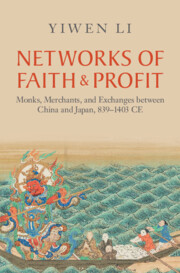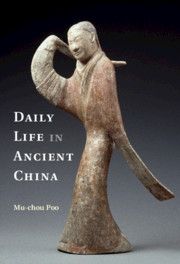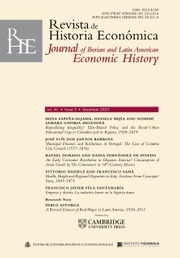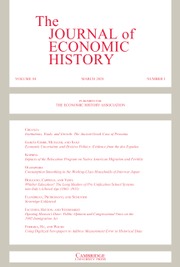Networks of Faith and Profit
Between 839 and 1403 CE, there was a six-century lapse in diplomatic relations between present-day China and Japan. This hiatus in what is known as the tribute system has led to an assumption that there was little contact between the two countries in this period. Yiwen Li debunks this assumption, arguing instead that a vibrant Sino-Japanese trade network flourished in this period as Buddhist monks and merchants fostered connections across maritime East Asia. Based on a close examination of sources in multiple languages, including poems and letters, transmitted images and objects, and archaeological discoveries, Li presents a vivid and dynamic picture of the East Asian maritime world. She shows how this Buddhist trade network operated outside of the framework of the tribute system and, through novel interpretations of Buddhist records, provides a new understanding of the relationship between Buddhism and commerce.
- Provides points of comparison to the cross-cultural dimensions of pre-modern trade in different contexts such as the Mediterranean
- Proposes a new framework for examining foreign relations in pre-modern China
- Sheds light on the mostly undocumented role of monks in maritime trade
Reviews & endorsements
‘A fascinating study of how politics, religion, and economic developments were intertwined in ancient and medieval Japan and China. Through skilful analysis of texts and archaeological discoveries, Networks of Faith and Profit reveals the importance of monks and monasteries in Sino-Japanese exchanges. Highly recommended.’ Thomas D. Conlan, Princeton University
‘By shedding light on the networks of Buddhist monks and merchants who nourished vital connections between China and Japan while the two countries suspended diplomatic relations, Li’s book offers a novel contribution to topical issues in pre-modern world history: the synergy and rivalry between religious and commercial elites and between state-sponsored and informal trading organizations.’ Francesca Trivellato, Institute for Advanced Study, Princeton University
‘In this path breaking study of Sino-Japanese maritime encounters from the ninth to the fifteenth century, Li Yiwen utilizes both Chinese and Japanese archival sources to illustrate how the intersection of Buddhist faith and commercial profit inspired private networks of monks and merchants who conveyed goods, ideas, and information between the continent and the archipelago.’ Richard von Glahn, University of California, Los Angeles
'… delivers what it promises: a detailed account of informal networks of Sino-Japanese relations from the ninth through the fourteenth centuries. Li has used the proven and effective strategy of choosing a topic that can be followed over the centuries, and thus demonstrating change.’ Mikael S. Adolphson, Journal of Chinese History
‘… an important and creative social and maritime historical study that, in richly documenting and explaining the agents and sinews of the networks linking Japan and China between the ninth and fourteenth centuries, deserves a wide readership among historians and religious scholars of premodern East Asia.’ Peter Shapinsky, Journal of Japanese Studies
Product details
June 2023Hardback
9781009303101
245 pages
235 × 158 × 18 mm
0.48kg
Available
Table of Contents
- 1. Introduction: Buddhist trade networks in East Asia
- 2. Replacing tributary relations: the reciprocal collaboration between monks and merchants, 839–900
- 3. Not only for the dharma: pilgrim monks as intermediaries between China and Japan, 900–1100
- 4. Building a Base for Trade: the 'Chinese quarter' in Hakata, 1100–1200
- 5. Transporting goods and faith: the economic privileges of the religious network, 1200–1270
- 6. Sending ships to China to finance monastery construction: trade between the Mongol empire and the Japanese archipelago, 1270–1368
- 7. Resuming tribute relations and the aftermath of the religio-commercial network, 1368–1403.










